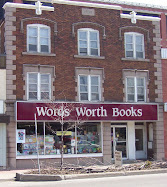
Colson Whitehead is one of my favourite American novelists, simply because each book is a departure from the one before it.
His first novel ten years back, the Intuitionist was a tightly controlled look at a sort of diagnostic civil war within the New York City Elevator Inspectors Guild, in which questions of race, justice and history were tackled within the schism over Empiricists vs. Intuitionists within the inspection trade.
Empiricists held that elevator problems had to be looked for in the gears and machinery.
Intuitionists held that mechanical failings gave up their secrets in the carriage.
Lila Mae Watson was the first black female inspector, and an Intuitionist.
Throw in an election in the Guild and it makes for a fine and tightly controlled look at old New York.
John Henry Days is conversely a sprawling look at a group of magazine feature writers on the circuit, covering all manner of soft news and feature articles for every publication under the sun.
The book culminates in a small southern town marking an anniversary of John Henry, the black railway worker who apocryphally took on a steam powered drill in a spike driving race, and won.
African-American history and subplots about lives touched by John Henry fill the novel to twice the size of Whitehead's first effort.
After another novel and a book of essays, Colson Whiteheads new book is "my autobiographical Fourth Novel" according to the cover.
Sag Harbour is a rueful and funny story about a group of black middle class New Englanders who summer (or just weekend) in the storied fishing village turned celebrity playground.
In the summer of 1985 Benji and Reggie are brothers and sons of relative privelege. They are part of a group of friends whose parents are all solidly middle class.
The book is a coming of age tale all the way, full of prideful and sexual firsts common to teenage boys. Dubious and private failures abound as well, as these young men negotiate their place in a transitory playground, and an enclave in which they are not the minority.
Benji is the narrator and the engine of the book.
He's a pop geek through and through, who hides his leanings well enough; but embraces the struggle for authenticity common to all teenagers with gusto and determination.
Anyone who was a teenager in this time period will appreciate the signposts that Whitehead knows so well, but the book is timeless in its look at the minefield that is the teen years.
Benji's secret love of horror flicks, lite FM, and his awkwardness around the emerging mysteries of girls make for both universal and at once new turf as Benji and his crew are both in and apart from most worlds they inhabit.
Whitehead was always very good, always a writer that I admired for his dexterity and wit.
But there's a warmth to Sag Harbor that is in full flower here.
Whitehead was a media critic for the Village Voice and he's a pop culture powerhouse, and his prose is both ad copy sharp and fluid.
This is wonderful stuff, and the book comes out in late April
Sag Harbor
Colson Whitehead
Doubleday $27.95


2 comments:
Post a Comment